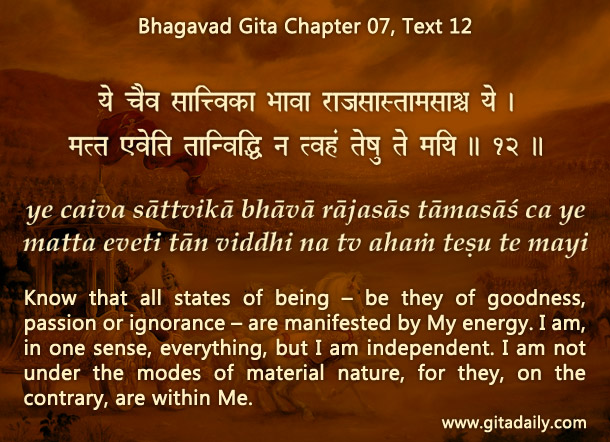Modern science often analyzes objects to be the sum of their parts. We may extend this scientific approach to spirituality – on coming to know that we all are parts of God (Bhagavad-gita 15.07), we may conceive that he is nothing more than the sum of his parts.
However, God is far greater than all his parts – the Gita (07.12) states that all of existence manifests from material nature, but he doesn’t exist in nature – nature exists in him. In philosophical terminology, this significant difference distinguishes panentheism from pantheism.
In pantheism, God is seen as the distributed, divine essence that pervades everything. This notion leaves no room for his distinct, personal self-existence. And it leaves unanswered the question: where did everything come from?
Panentheism addresses this question by asserting God’s position as the transcendent source of everything – he pervades all of existence and also extends beyond, in his self-existence. The Gita (08.22) points to panentheism when declaring that not only is he present in everything, but also that everything is present in him; the latter statement implies that he is greater than everything. The previous verse (08.21) reiterates God’s supreme self-existence by stating the supreme abode, which exists beyond material nature, is his abode.
The point that the Supreme Whole is greater than the sum of his parts underscores his position as the supreme deliverer – he is greater than us souls who are bound, and greater than the material energy whose illusions bind us. The Gita (07.14) stresses his transcendental omnipotence when declaring that those who surrender to him overcome the material energy.
Thus, God exists not just in everything, but also above everything – and he exists there not passively, but powerfully; he has the power to deliver us who exist below, provided we seek his grace through surrendered devotion.
To know more about this verse, please click on the image
Explanation of article:
Podcast:


it is a rare intelligence to view the GOD in everything